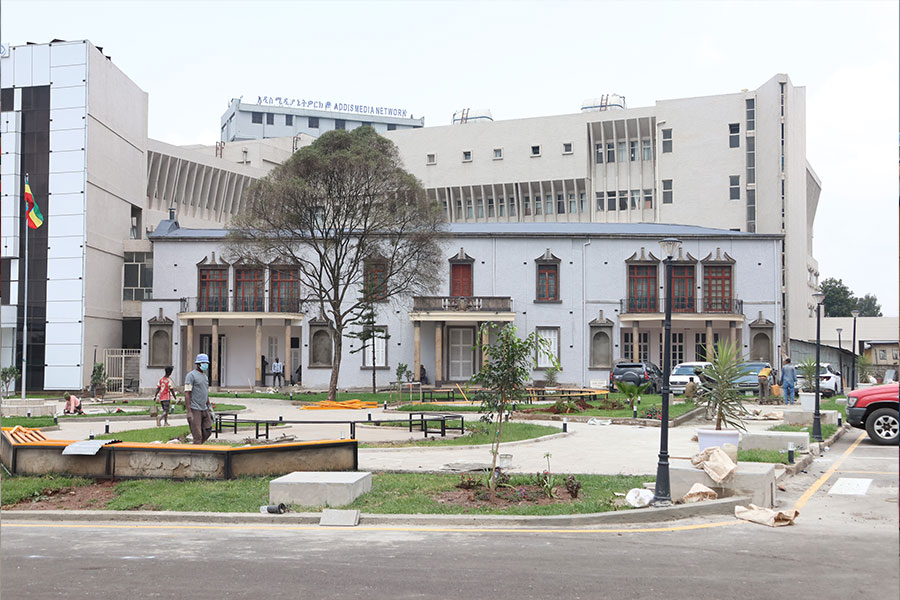
In-Picture | Jul 06,2025
Question: Climate change is a complex problem, but maybe there is a simple solution. What might that look like?
Nnimmo Bassey: Simple solutions are avoided in today’s world because they do not support capital. And capital is ruling the world. Life is simpler than people think. The complex problems we have today are all human-made by our love of complexities.
But the idea of capital accumulation has led to massive losses and destruction and led the world to the brink. If we are talking about warming, we need a simple solution: Leave the carbon in the ground, leave the oil in the soil, [and] leave the coal in the hole. Simple as that. When people leave the fossils in the ground, they are seen as anti-progress and anti-development, whereas these are the real climate champions: People like the Ogoni people in the Niger Delta, the territory where the Nigerian state murdered Ken Saro-Wiwa in 1995.
Now the Ogoni people have kept the oil in their territory in the ground since 1993. That is millions upon millions of tons of carbon locked up in the ground. That is climate action. That is real carbon sequestration.
Q: Could you talk about the climate debt owed to the Global South in general, and African nations in particular?
Bassey: There is no doubt that there is climate debt, and indeed an ecological debt owed to the Global South, and Africa in particular. It has become clear that the sort of exploitation and consumption that has gone on over the years has become a big problem, not just for the regions that were exploited but for the entire world.
The argument we are hearing is that if the financial value is not placed on nature, nobody’s going to respect or protect nature. Now, why was no financial cost placed on the territories that were damaged? Why were they exploited and sacrificed without any consideration or thought about what the value is to those who live in the territory, and those who use those resources?
If we are to go the full way with this argument of putting price tags on nature so that nature can be respected, then you have to also look at the historical harm and damage that has been done, place a price tag on it, recognize that this is a debt that is owed, and have it paid.
Q: You have discussed how some policies meant to address climate change are “false solutions,” particularly those intended to address the climate debt owed to the Global South and Africa. Could you talk a bit about the misnomer of the Global North’s proposals of “nature-based solutions” to the climate crisis that claim to emulate the practices and wisdom of indigenous communities in ecological stewardship but which actually seem like an extension of colonial exploitation — rationalizations to allow the richer nations that are responsible for the pollution to continue polluting?
Bassey: The narrative has been so cleverly constructed that when you hear, for example, reducing emissions from deforestation and forest degradation (REDD), everybody says, “Yes, we want to do that.” And now we are heading to “nature-based solutions.” Who does not want nature-based solutions? Nature provided the solution to the challenges [that indigenous people have] had for centuries, for millennia. And now, some clever people appropriate the terminology.
When indigenous communities say they want nature-based solutions, the clever people will say, “well, that’s what we’re talking about.” Whereas they are not talking about that at all. Everything is about generating value chains and revenues, completely forgetting who we are as part of nature. The entire scheme has been one insult after another. The idea of putting a price on the services of Mother Earth, and appropriating financial capital from those resources from this process is another horrible way people are being exploited.
Q: How does REDD adversely impact local communities on the African continent?
Bassey: REDD is a great idea, which should be supported by everyone merely looking at that label. But the devil is in the detail. It is made by securing or appropriating or grabbing some forest territory and then declaring that to be a REDD forest. And once that is done, it becomes paramount that it is no longer a forest of trees. It is now a forest of carbon, a carbon sink. If you look at the trees, you do not see them as ecosystems. You do not see them as living communities. You see them as carbon stock. And that immediately sets a different kind of relationship between those living in the forest, those who need the forest, and those who are now the owners. It is because of that logic that [some] communities in Africa have lost access to their forests, or lost access to the use of their forests, the way they had been using [them] for centuries.
Q: As an activist, you have done some dangerous work opposing gas flaring. Could you tell us about gas flaring and how it impacts the Niger Delta?
Bassey: Gas flaring, simply put, is setting gas on fire in the oil fields. Because when crude oil is extracted in some locations, it could come out of the ground with natural gas and with water and other chemicals. The gas that comes out of the well with the oil can be easily reinjected into the well. And that is almost like carbon capture and storage. It goes into the well and also helps to push out more oil from the well.
You have more carbon released into the atmosphere. Secondly, the gas can be collected and utilized for industrial purposes, cooking or processed for liquefied natural gas. Or the gas could just be set on fire. And that is what we have, at many points — probably over 120 locations in the Niger Delta. You have these giant furnaces. They pump a terrible cocktail of dangerous elements into the atmosphere, sometimes in the middle of where communities [reside], and sometimes horizontally, not [with] vertical stacks. You have birth defects, [and] all kinds of diseases imaginable, caused by gas flaring. It also reduces agricultural productivity, up to one kilometer from the location of the furnace.
Q: The UN climate conference COP27; is there any hope for some real change here?
Bassey: The only hope I see with the COP is the hope of what people can do outside the COP. The mobilizations that the COPs generate in meetings across the world — people talking about climate change, people taking real action, and indigenous groups organizing and choosing different methods of agriculture that help cool the planet. People just doing what they can — that to me is what holds hope. The COP itself is a rigged process that works very colonially, offloading climate responsibility on the victims of climate change.
PUBLISHED ON
Jan 07,2023 [ VOL
23 , NO
1184]

In-Picture | Jul 06,2025

Viewpoints | Sep 10,2023
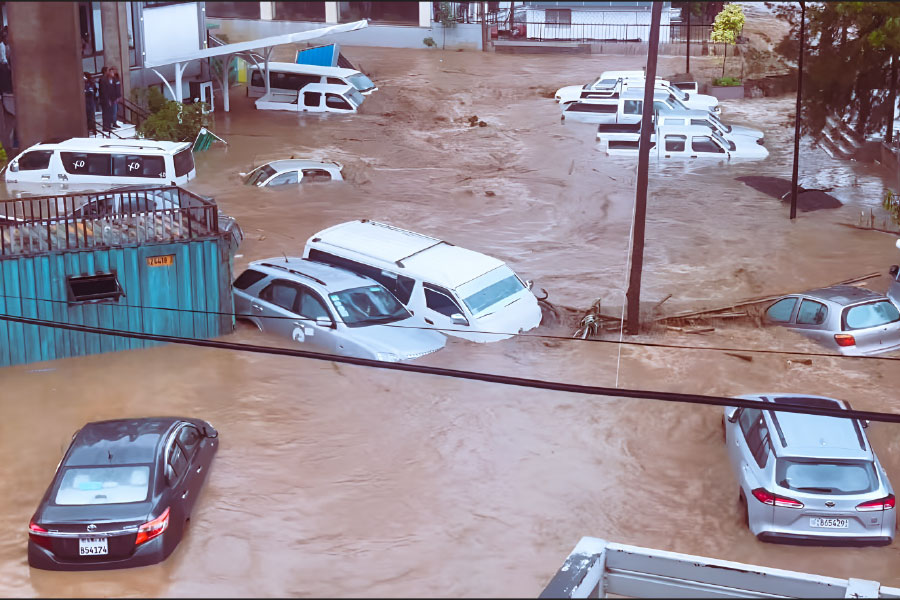
Fortune News | Aug 02,2025

Radar | Aug 26,2023
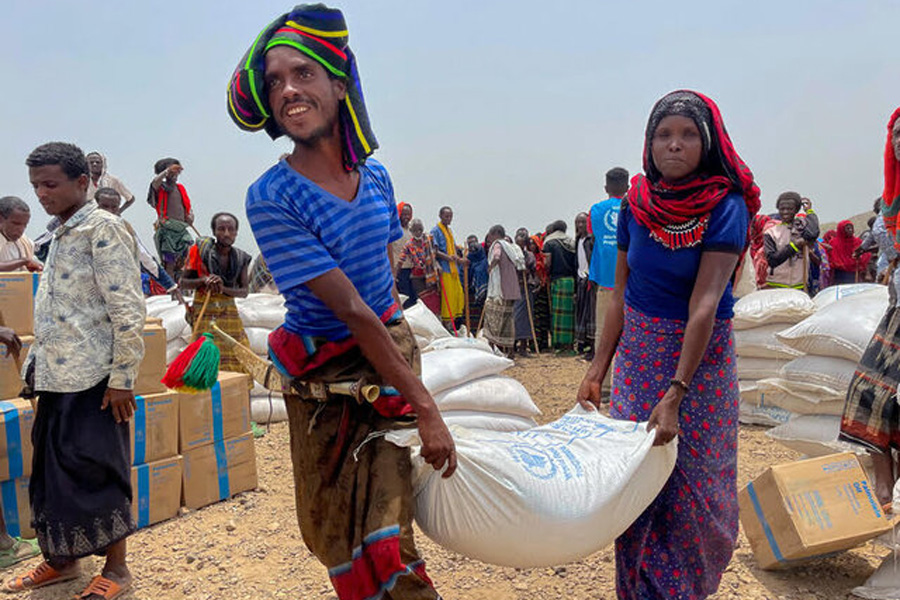
Fortune News | Dec 01,2024
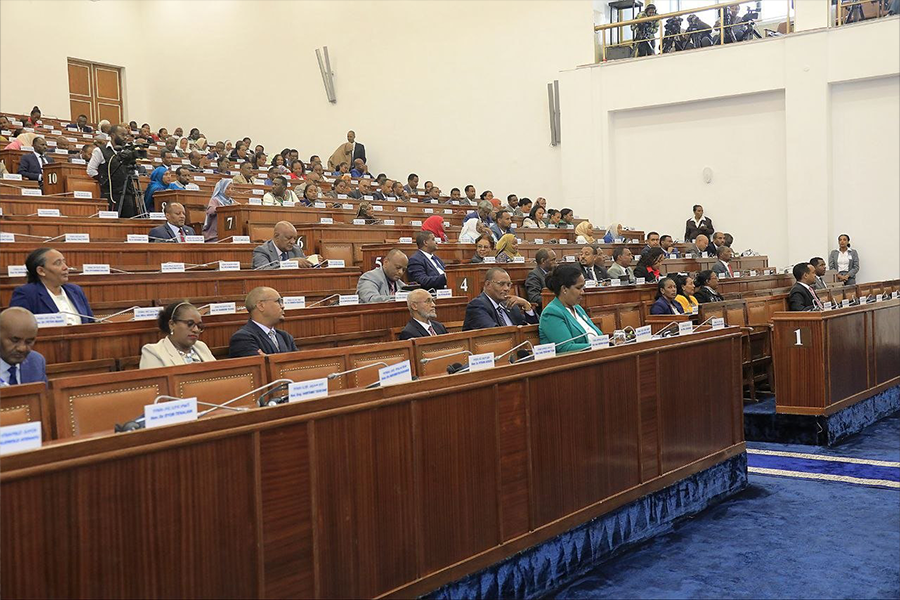
Fortune News | Jul 19,2025
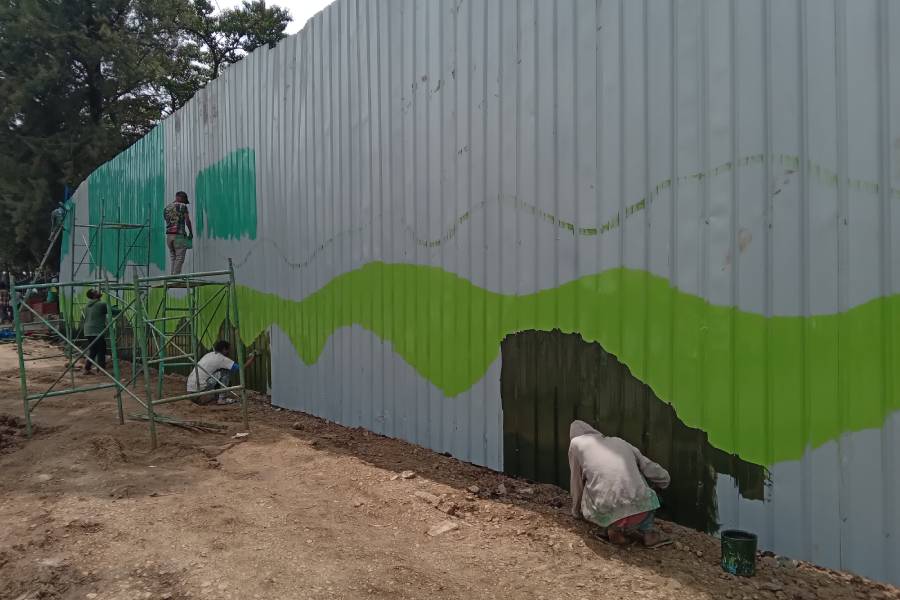
In-Picture | Jul 08,2024

Viewpoints | Jan 22,2022
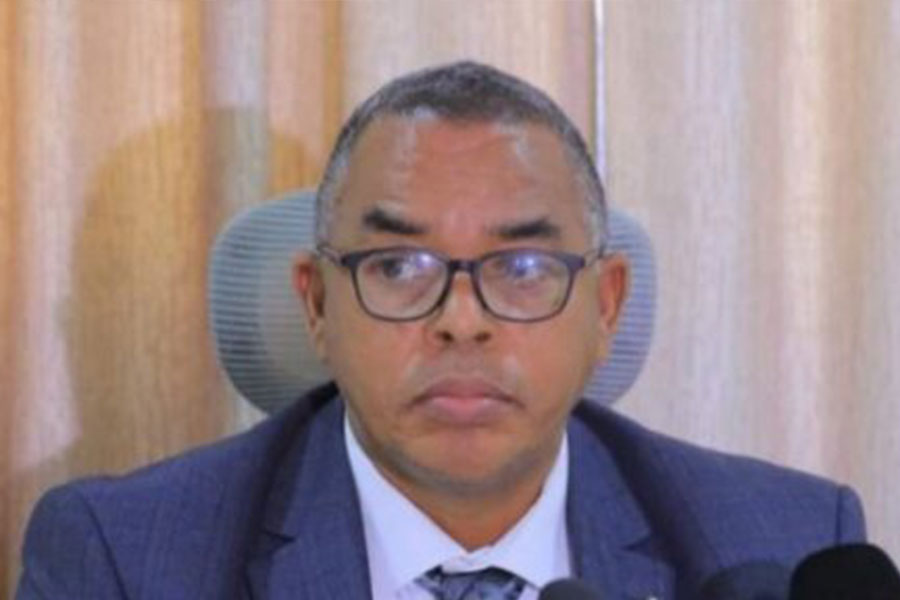
Fortune News | Jul 17,2022
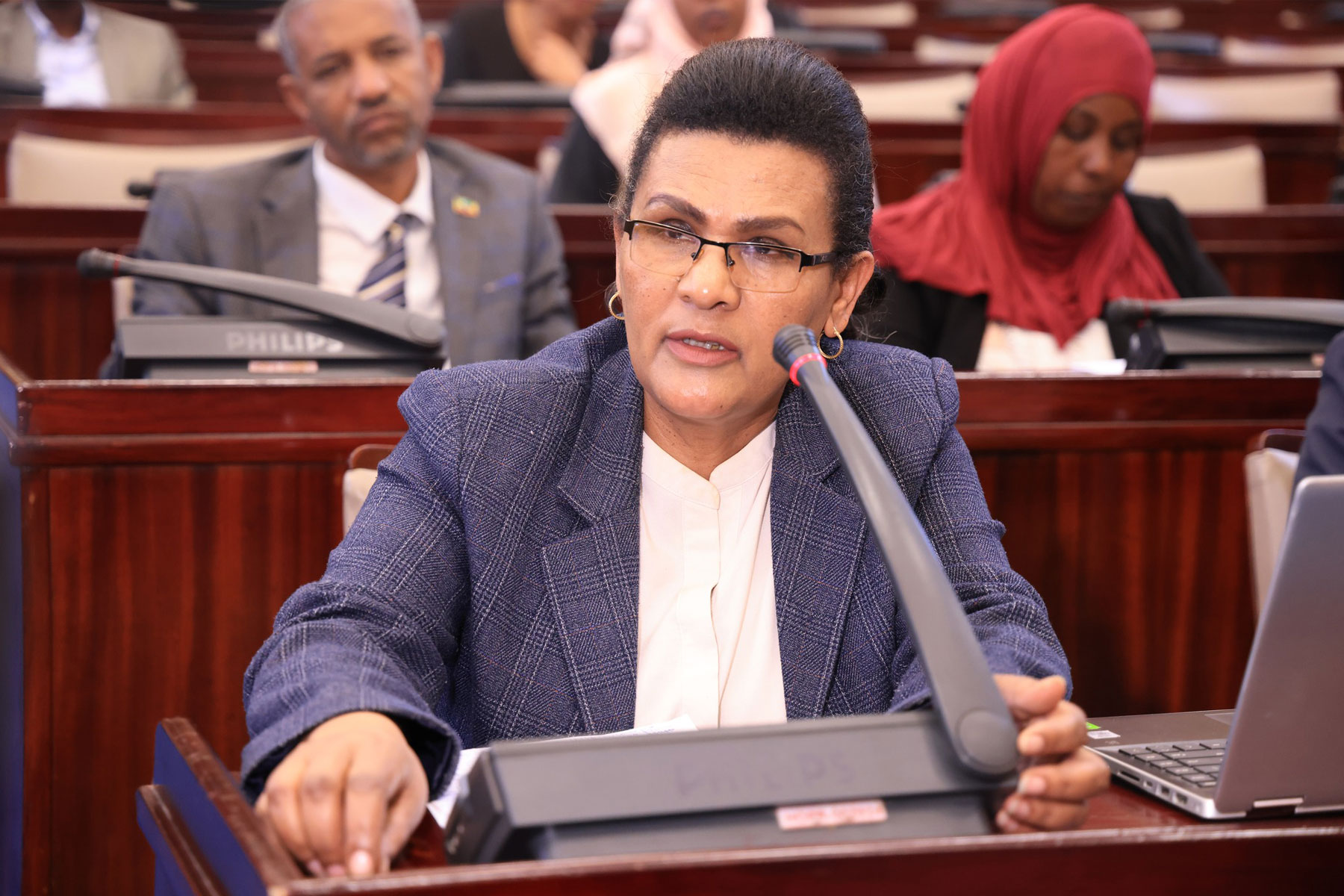
Fortune News | Apr 28,2024

Dec 22 , 2024 . By TIZITA SHEWAFERAW
Charged with transforming colossal state-owned enterprises into modern and competitiv...

Aug 18 , 2024 . By AKSAH ITALO
Although predictable Yonas Zerihun's job in the ride-hailing service is not immune to...

Jul 28 , 2024 . By TIZITA SHEWAFERAW
Unhabitual, perhaps too many, Samuel Gebreyohannes, 38, used to occasionally enjoy a couple of beers at breakfast. However, he recently swit...

Jul 13 , 2024 . By AKSAH ITALO
Investors who rely on tractors, trucks, and field vehicles for commuting, transporting commodities, and f...

Sep 13 , 2025
At its launch in Nairobi two years ago, the Africa Climate Summit was billed as the f...

Sep 6 , 2025
The dawn of a new year is more than a simple turning of the calendar. It is a moment...

Aug 30 , 2025
For Germans, Otto von Bismarck is first remembered as the architect of a unified nati...

Aug 23 , 2025
Banks have a new obsession. After decades chasing deposits and, more recently, digita...